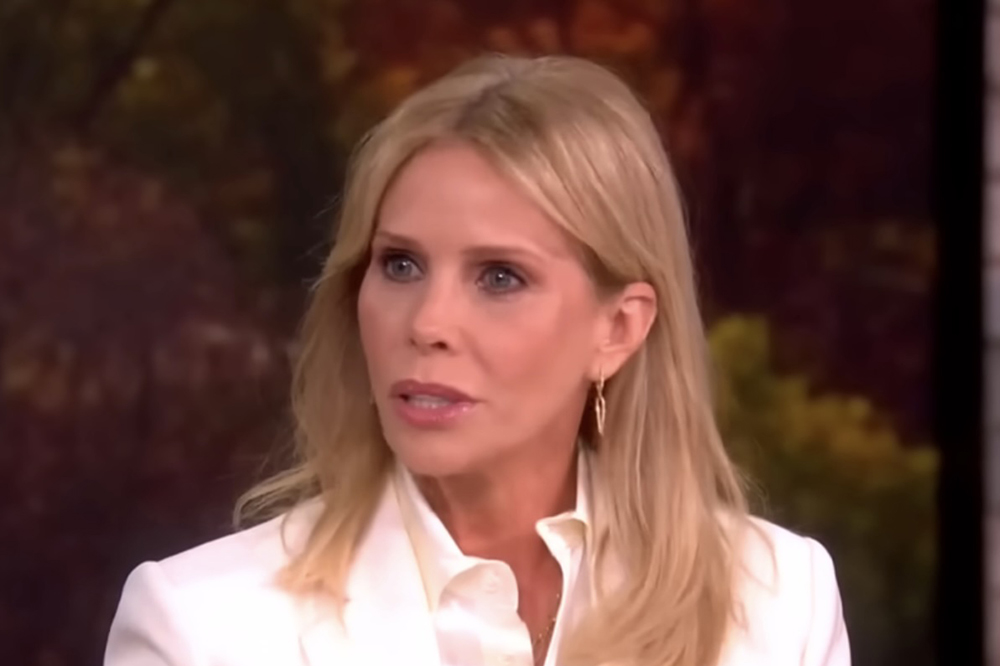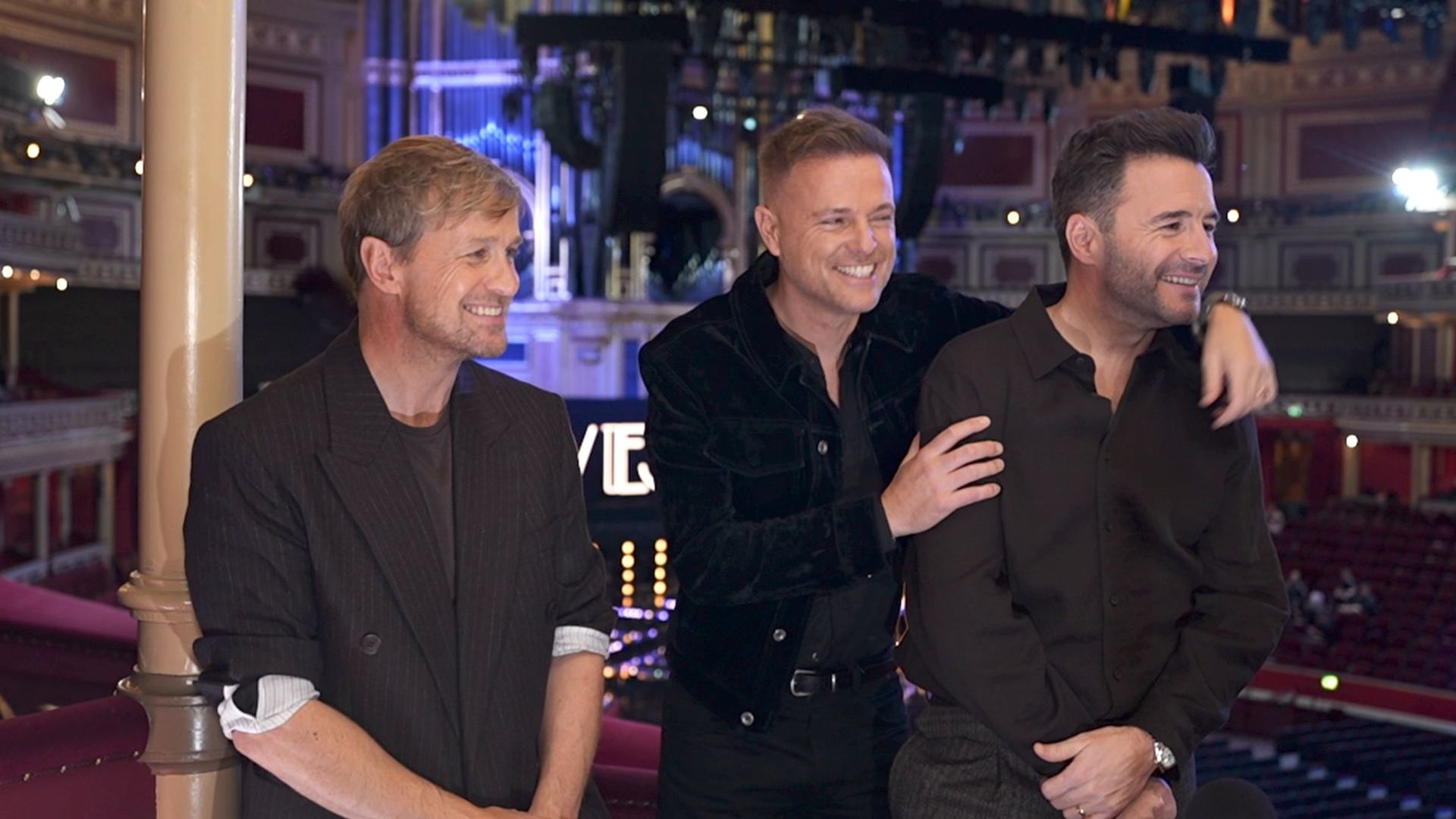Cheryl Hines Exposes ‘The View’ Hosts as Political Attack Dogs, Igniting Outrage Over Media’s Role in Personal Lives and Public Discourse on Health Policies and Family Dynamics in America’s Divided Landscape
Cheryl Hines, an actress and comedian known for her role in Larry David’s HBO sitcom, recently expressed her frustration with the interview she had on “The View.” During the segment, Hines felt that the hosts were more interested in interrogating her about her husband, Robert F. Kennedy Jr., than discussing her own work, particularly her new book. This incident has sparked a broader conversation about the media’s role in personal lives, especially when it intersects with public figures and contentious political issues.
Robert F. Kennedy Jr. is a prominent environmental attorney and activist, known for his controversial views on vaccines and public health. His recent appointment as the U.S. Secretary of Health and Human Services has placed him at the center of heated debates surrounding health policies in America. As a result, any discussion involving him inevitably touches on divisive topics that have polarized public opinion. Hines’s experience on “The View” highlights how media platforms often prioritize sensationalism over substantive dialogue, particularly when it comes to the personal lives of public figures.
The media landscape has evolved significantly over the past few decades, with talk shows like “The View” becoming platforms for not just entertainment but also political discourse. The format encourages hosts to engage in lively debates, often leading to confrontational exchanges. In this environment, guests can find themselves cornered, as Hines did, when the focus shifts from their professional contributions to their personal relationships. This shift raises questions about the ethics of media interviews and the responsibilities of hosts to provide a balanced platform for discussion.
Hines’s critique of her interview reflects a growing frustration among public figures who feel that their personal lives are often exploited for ratings and sensational headlines. The expectation for celebrities to share intimate details about their relationships, especially when those relationships are intertwined with political figures, can create a toxic atmosphere where genuine dialogue is sacrificed for entertainment value. This dynamic is particularly evident in the case of Hines and Kennedy, where the intersection of health policy and personal narrative becomes a battleground for public opinion.
The backlash against media practices that prioritize sensationalism over substance is not new. Over the years, various public figures have voiced their concerns about the invasive nature of media scrutiny. This phenomenon is especially pronounced in the context of political figures, where personal lives are often scrutinized to an extreme degree. The public’s insatiable appetite for gossip and scandal can overshadow important discussions about policy and governance, leading to a culture where personal attacks are commonplace.
Hines’s experience also underscores the challenges faced by women in the public eye. Female celebrities often find themselves subjected to different standards than their male counterparts, with a greater emphasis placed on their personal lives and relationships. This gendered scrutiny can detract from their professional achievements and contributions, as seen in Hines’s case, where her book was overshadowed by questions about her husband. The media’s focus on personal relationships can perpetuate stereotypes and reinforce societal norms that prioritize women’s roles as partners and caregivers over their professional identities.
Moreover, the intersection of celebrity culture and political discourse raises important questions about the role of public figures in shaping societal narratives. As individuals with significant platforms, celebrities have the potential to influence public opinion and drive conversations around critical issues. However, when their voices are drowned out by sensationalist media coverage, the opportunity for meaningful engagement is lost. Hines’s critique serves as a reminder of the need for a more responsible approach to media coverage, one that prioritizes substance over sensationalism.
The current political climate in the United States is marked by deep divisions and contentious debates surrounding health policies, particularly in light of the COVID-19 pandemic. Kennedy’s controversial views on vaccines have placed him at the forefront of these discussions, making him a polarizing figure. As a result, any mention of him in the media is likely to elicit strong reactions from various segments of the population. Hines’s experience on “The View” illustrates how the media can become a battleground for these debates, often at the expense of nuanced discussions about public health.
In this context, the role of talk shows and media platforms becomes even more critical. They have the power to shape public discourse and influence perceptions of key issues. However, when these platforms prioritize sensationalism, they risk alienating audiences and undermining the potential for constructive dialogue. Hines’s frustration with her interview highlights the need for a shift in how media outlets approach discussions involving public figures, particularly those with controversial viewpoints.
As the media landscape continues to evolve, it is essential for both hosts and guests to navigate these conversations with care. The responsibility lies not only with the media to provide a balanced platform but also with public figures to engage in meaningful dialogue that transcends personal narratives. Hines’s experience serves as a call to action for both sides to prioritize substance over sensationalism, fostering an environment where important discussions can take place without being overshadowed by personal attacks.
The implications of Hines’s critique extend beyond her individual experience, touching on broader themes of media ethics, gender dynamics, and the intersection of celebrity culture and politics. As audiences become increasingly aware of the impact of media coverage on public perception, there is a growing demand for accountability and responsible journalism. The challenge lies in finding a balance between engaging storytelling and substantive discourse, ensuring that important issues are addressed without resorting to sensationalism.
In conclusion, Cheryl Hines’s experience on “The View” serves as a microcosm of the larger issues at play in today’s media landscape. The intersection of personal lives and public discourse presents both challenges and opportunities for meaningful engagement. As the media continues to evolve, the need for responsible coverage that prioritizes substance over sensationalism becomes increasingly critical in fostering a more informed and engaged public.




